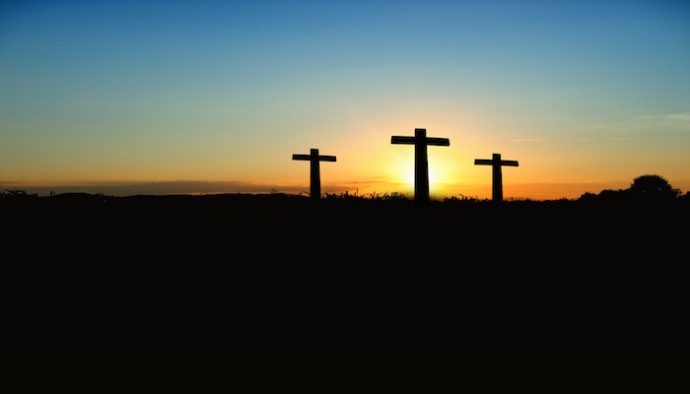Easter is a season for answering questions. It always has been.
The early followers of Jesus had plenty questions between Good Friday, when Jesus was crucified, and Sunday morning when He rose from the grave:
- How did this happen?
- What do we do now?
- Was Jesus who He said He was?
- Was our faith in vain?
And then there were the more personal questions from those like Peter who, though he had opportunity to make good on his boastful claims of allegiance, scattered and ran instead of standing by his friend. Surely his questions were even deeper:
- What do I really believe?
- What did Jesus think of me?
- How can I continue on after what I’ve seen – and what I’ve done?
But Easter is about answering questions. The resurrection of Jesus placed a stake in the ground, once and for all, for the sake of truth. The resurrection validates Jesus claims about Himself. The resurrection invites people into a proven and justified relationship with God. The resurrection puts our guilt and shame to rest and ushers into freedom. He is risen, and questions are answered.
Paul dealt with many of these questions in 1 Corinthians 15. Though the letter was written years after Jesus rose from the dead, and though it was written to a church of professing Christians, Paul nevertheless took them back to what was “most important”:
Now I want to make clear for you, brothers and sisters, the gospel I preached to you, which you received, on which you have taken your stand and by which you are being saved, if you hold to the message I preached to you—unless you believed in vain (1 Cor. 15:1-2).
In the verses that follow, Paul not only reminded the Corinthians of the facts of the gospel; he also reminded them of the questions the resurrection answers. It answers the question of the reliability of Jesus. It shows us our ultimate future in Christ. It reveals how God deals with the last enemy of death. The resurrection answers all these questions and more.
But then you get to the very end of this chapter – the “so what” of Paul’s recounting of the resurrection. Here is how he closed this section:
Therefore, my dear brothers and sisters, be steadfast, immovable, always excelling in the Lord’s work, because you know that your labor in the Lord is not in vain (1 Cor. 15:58).
See, Paul’s end game was not only for the Corinthians to know the truths of the gospel; it was for them to see that the resurrection changes the way they live in their day to day lives. In light of the fact that Jesus rose from the dead, we should still be steadfast. We should be immovable. We should always be excelling in the Lord’s work.
In other words, I believe the resurrection of Jesus should lead us to be asking one question over and over again:
How is __________ impacted by the reality of Jesus’ resurrection?
You can fill in the blank in any way you want, and we should fill in the blank a hundred times a day:
How is my calendar impacted by the reality of Jesus’ resurrection?
Well, if Jesus rose from the dead, then I should make sure I discipline myself to treat the time God has given me as a steward for what’s most valuable to the kingdom. Further, if Jesus rose from the dead, then I should feel the freedom to say “no” to certain things without worrying about how I will look or proving myself to other people.
How is my discipline of my kids impacted by the reality of Jesus’ resurrection?
Well, if Jesus rose from the dead, then it means that I ought to have a long game approach in talking with my kids. I shouldn’t fly off the handle or hand out quick punishments without considering how I can shepherd these kids’ souls and not just curb their behavior.
How is my frustration at work impacted by the reality of Jesus’ resurrection?
Well, even if I’m frustrated at work, I should remember that if Jesus rose from the dead, that He has the ultimate say over my self worth. He alone can tell me who I am regardless of how important others see me. In fact, because Jesus rose from the dead, the greatest place in the kingdom is probably the least recognized position of service here on earth.
And so on. The point is that we ask the question over and over again. We discipline our minds to look at our daily lives in light of the resurrection. Now that Jesus has put a myriad of question to rest, we ought to be applying the truth of Easter to our everyday lives.
Subscribe to MichaelKelley.co
Never miss a new post. Subscribe to receive these posts in your inbox and to receive information about new discipleship resources.






1 Comment